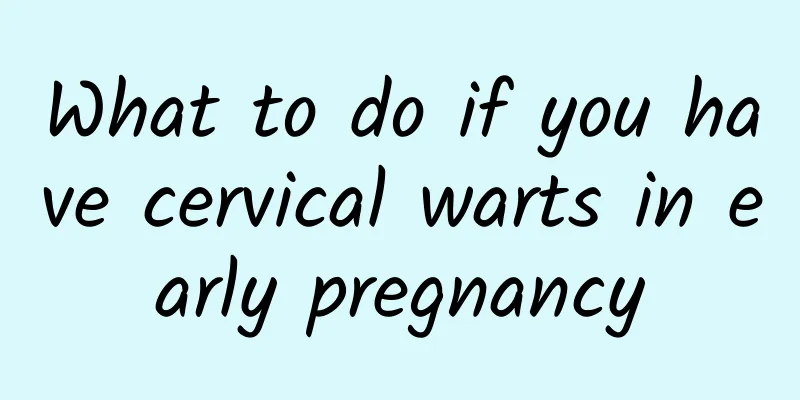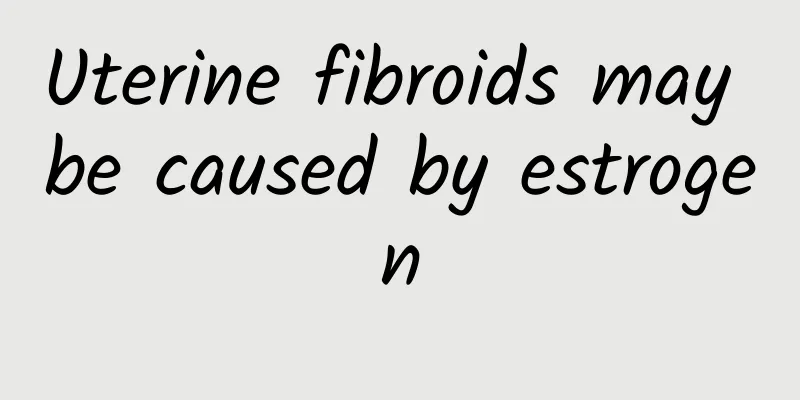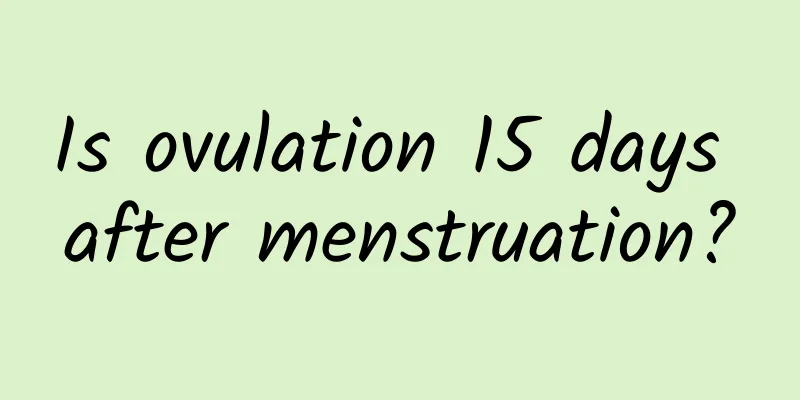What to do if you have cervical warts in early pregnancy

|
Once you are infected with cervical warts, you should try to prevent them in terms of diet and hygiene, and do a good job of use and disinfection. It is recommended that you refrain from sexual intercourse during this period to avoid cross-infection. It is also recommended that you refrain from using Chinese and Western medicines, as they will affect the fetus. It is recommended that the fetus be infected through the birth canal of cervical warts. When giving birth, you should choose a cesarean section. If the situation is serious, you should receive treatment in the hospital and avoid strenuous exercise. So how to treat cervical warts in pregnant women? What should you pay attention to in order to recover from the disease? 1. If you are infected with cervical warts during pregnancy, you should first use physical methods such as laser to control the clinical symptoms, and then receive thorough treatment after the baby is born. You cannot use medication now to avoid affecting the fetus. It is recommended that the fetus be infected through the birth canal with cervical warts, and you choose a cesarean section during delivery. 2. The treatment of cervical warts in pregnant women is sometimes complicated, and clinically, it requires consultation between obstetricians and gynecologists and venereal disease physicians. Cervical warts that appear during and after pregnancy should be actively treated. Since the mother's genitals become congested and softened after pregnancy and certain drugs will affect the fetus, a combination of physical therapy and drug therapy can be used for pregnant women, and the treatment plan can be selected according to the location, size, and number of warts. 3. There is a problem of recurrence after treatment of cervical warts. Recurrence most often occurs within 3 months after treatment. Generally speaking, as time goes by, the patient's contamination decreases and the possibility of recurrence also decreases. If there is no recurrence one year after treatment, its infectiousness and possibility of recurrence are extremely small. Therefore, young women who have not had a recurrence for more than one year after treatment can consider pregnancy, but after pregnancy, they should have regular prenatal examinations and pay attention to the cleanliness of the urogenital tract. |
<<: Will pregnancy with cervical warts affect the baby?
>>: What are the effects of cervical warts on pregnant women?
Recommend
Do you know what are the early symptoms of cervicitis?
What are the early symptoms of cervicitis? Expert...
What causes vaginal candidal infection?
The causes of candidal vaginitis confuse many fem...
Will this make you fat? Bacteria are the culprit of obesity
Working overtime late at night, having a few drin...
What should I do if my vulva is itchy and there is scaly white skin on the upper part?
What should I do if my vulva is itchy and there i...
Why do infertile women suffer from uterine fibroids? How to treat uterine fibroids
What should women do when they find uterine fibro...
How to prevent cervical erosion
Cervical erosion is one of the most common diseas...
A female nutritionist who weighs nearly 100 kg lost 8 kg by fasting 2 days a week.
Nutritionist Song Yoo-hsuan was once a "big ...
What should I do if I have uterine fibroids during pregnancy? Can I still have children if I have uterine fibroids during pregnancy?
If uterine fibroids are found after pregnancy, th...
Can vaginal candidiasis cause anal pain?
Candidiasis usually refers to vulvovaginal candid...
Can you lose weight by eating too much on a cheat day? Chinese medicine practitioners teach you 3 tips on eating whatever you want
Xiaoxuan went to a buffet with her friends on Sat...
What causes uterine effusion?
What are the causes of uterine effusion? Uterine ...
Can intrauterine adhesions be cured?
Can intrauterine adhesions be cured? Women are pr...
How to diagnose uterine effusion best
Although the occurrence of uterine effusion is cl...
Is it easy to get pregnant with adenomyosis?
Is it easy to get pregnant with adenomyosis? It i...
Three reasons why middle-aged women are prone to uterine fibroids
The medical community has conducted detailed rese...









